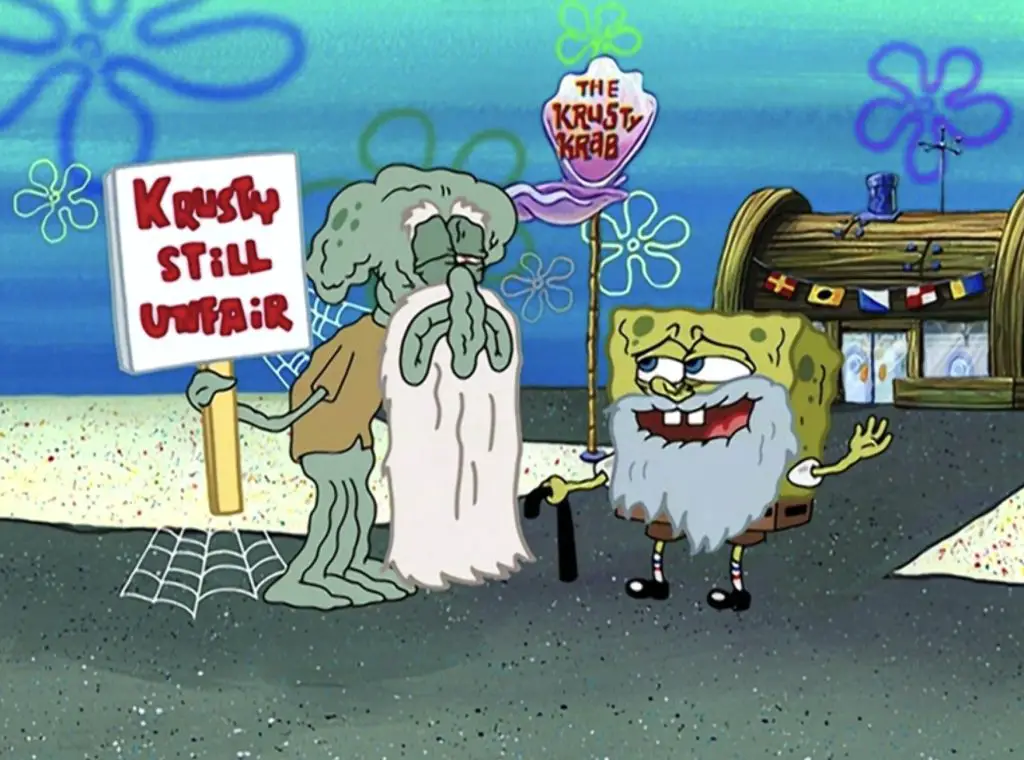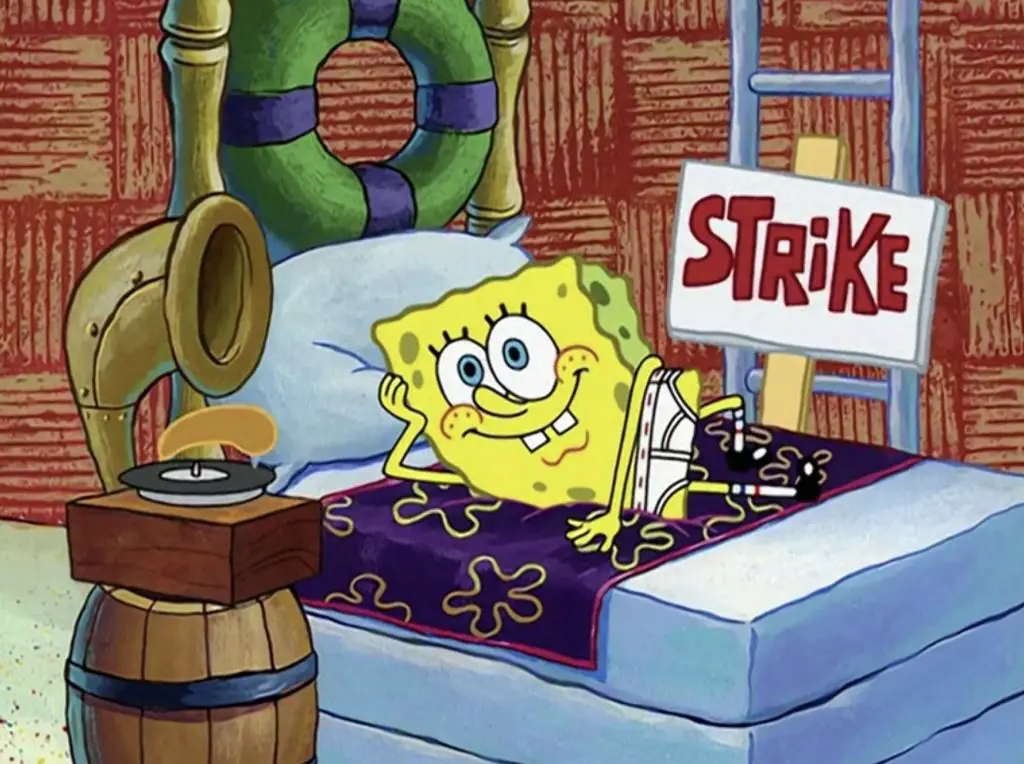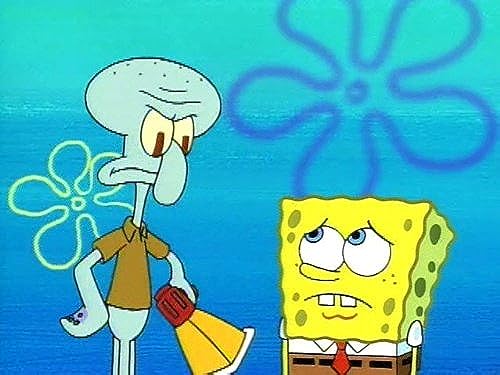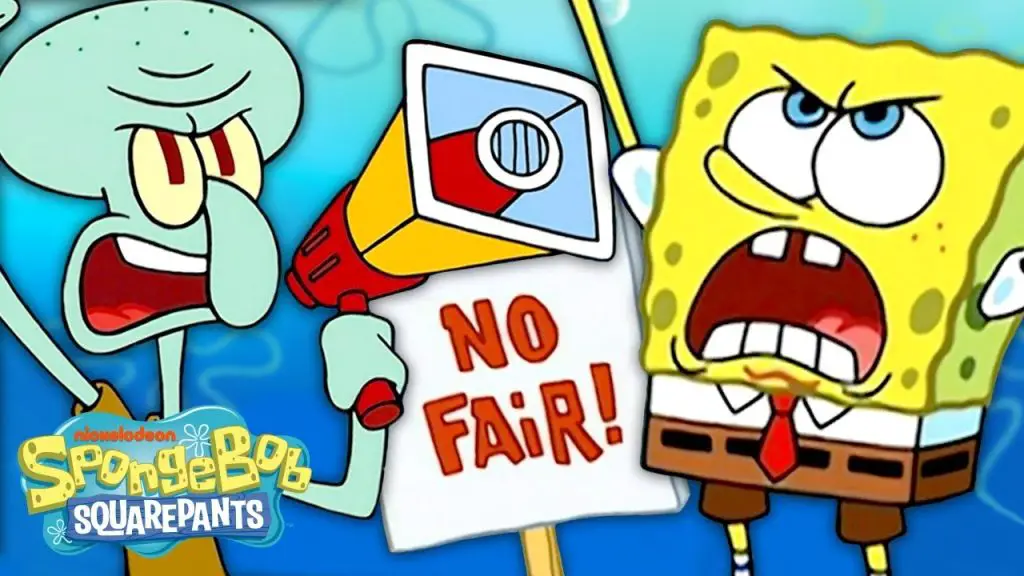Few might imagine that the beloved animated series SpongeBob SquarePants would have anything substantial to comment on the state of labor in our modern world. But a closer examination reveals that this creation by Stephen Hillenburg offers a profound look into corporate behaviors and workers’ rights, especially through the eccentric character dynamics between SpongeBob, his miserly employer Mr. Krabs, and his disgruntled colleague Squidward.
Why Are the Denizens of the Krusty Krab Protesting?

The episode “Squid on Strike” provides a poignant portrayal. It unveils a scenario where Mr. Krabs, alarmed by a trivial drop in his monthly profits, responds by deducting absurd fines from his employees’ wages. Charges like “breathing” and “standing,” the latter of which is ironically part of Squidward’s job description, lead to an uproar. Squidward, infuriated by these ludicrous cuts and the idea of paying for merely existing, rallies SpongeBob to stand up against their boss and demand better working conditions.
But the journey isn’t smooth. SpongeBob, with his unwavering loyalty to the Krusty Krab, struggles to grasp the concept of a strike. From mistakenly promoting a “Krusty Krab Funfair” to misinterpreting Squidward’s call for dismantling oppressive structures, SpongeBob’s naivety and literal thinking lead to both comical and catastrophic outcomes.
The Bikini Bottom Community’s Perception of Protests
Interestingly, the citizens of Bikini Bottom too have a skewed understanding of the strike. A police officer’s promptness to penalize Squidward for “littering” when he drops his hat in protest may either be a nod to the establishment’s tendency to suppress dissent or simply a comedic twist. Similarly, while Squidward’s eloquent speech grabs attention, it fails to instill a sense of purpose, with the community rushing to satisfy their cravings at the Krusty Krab immediately afterward.
This behavior leads Squidward to lament the community’s disregard for the plights of laborers in the face of instant gratification. The episode brilliantly captures the complexities and challenges that labor movements face, even when the demands are just.
Squidward and SpongeBob: A Representation of Labor Dynamics

While Squidward represents the well-informed, passionate worker yearning for fair treatment, SpongeBob epitomizes those who are yet to realize their worth in the corporate machine. The latter’s love for his job blinds him to exploitation, resonating with David Zaslav’s idea that passion can overshadow legitimate demands. Even so, SpongeBob’s heart is in the right place. Despite his initial misconceptions, he eventually rallies behind Squidward, albeit with a few missteps.
An Unexpected Triumph and the Power of Unity
The climax of the episode underscores a significant truth: workers, when united, can wield tremendous power. Despite the comedic chaos, the “Krusty Krab is a wreck” without its primary workforce. And within a day, even a money-conscious employer like Mr. Krabs acknowledges their value. This rapid capitulation illustrates the potential impact of a united front against corporate injustices.
Conclusion

“Squid on Strike” offers more than just entertainment. It subtly educates its audience about the nuances of labor movements, highlighting the importance of solidarity and the challenges of effective communication. By integrating these profound themes into an episode, SpongeBob SquarePants solidifies its legacy as a show that caters not just to children but also to adults, addressing relevant societal concerns. It stands as a testament to the show’s brilliance during its golden era and its unique ability to merge humor with impactful messages.


